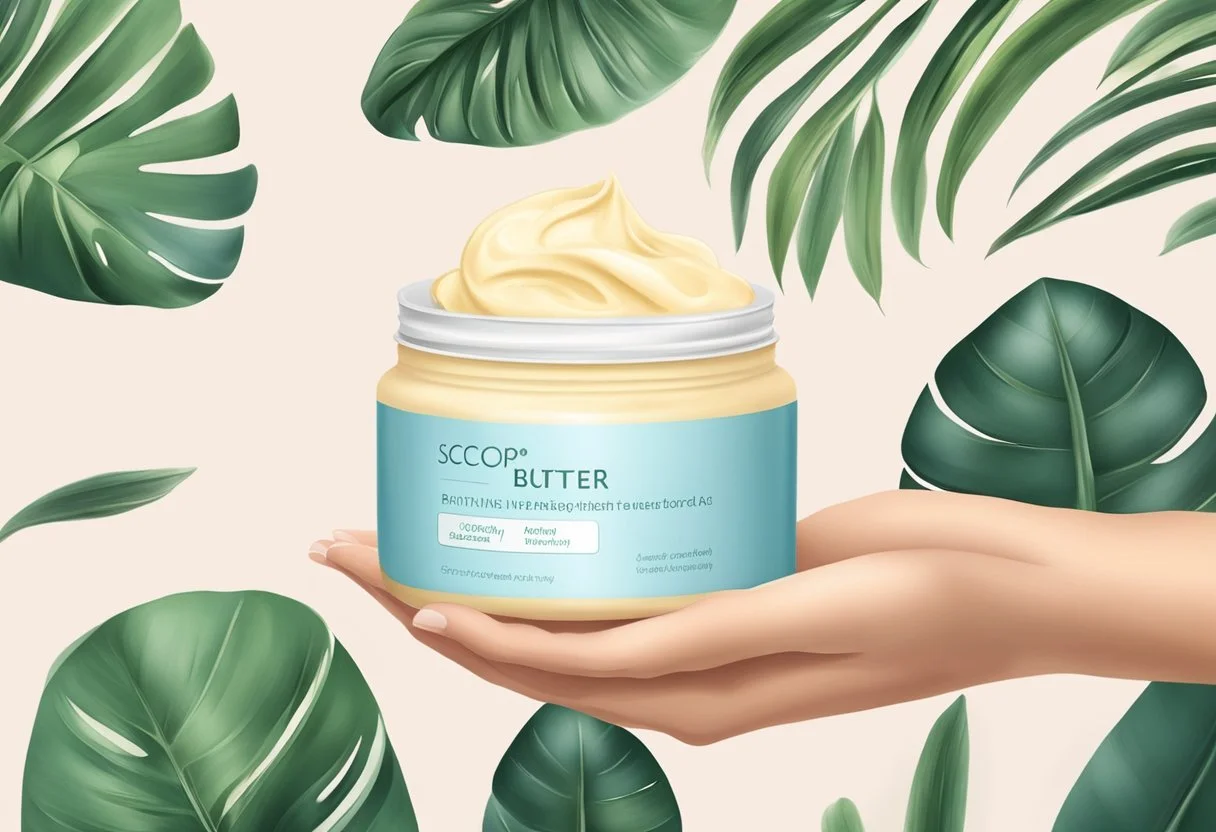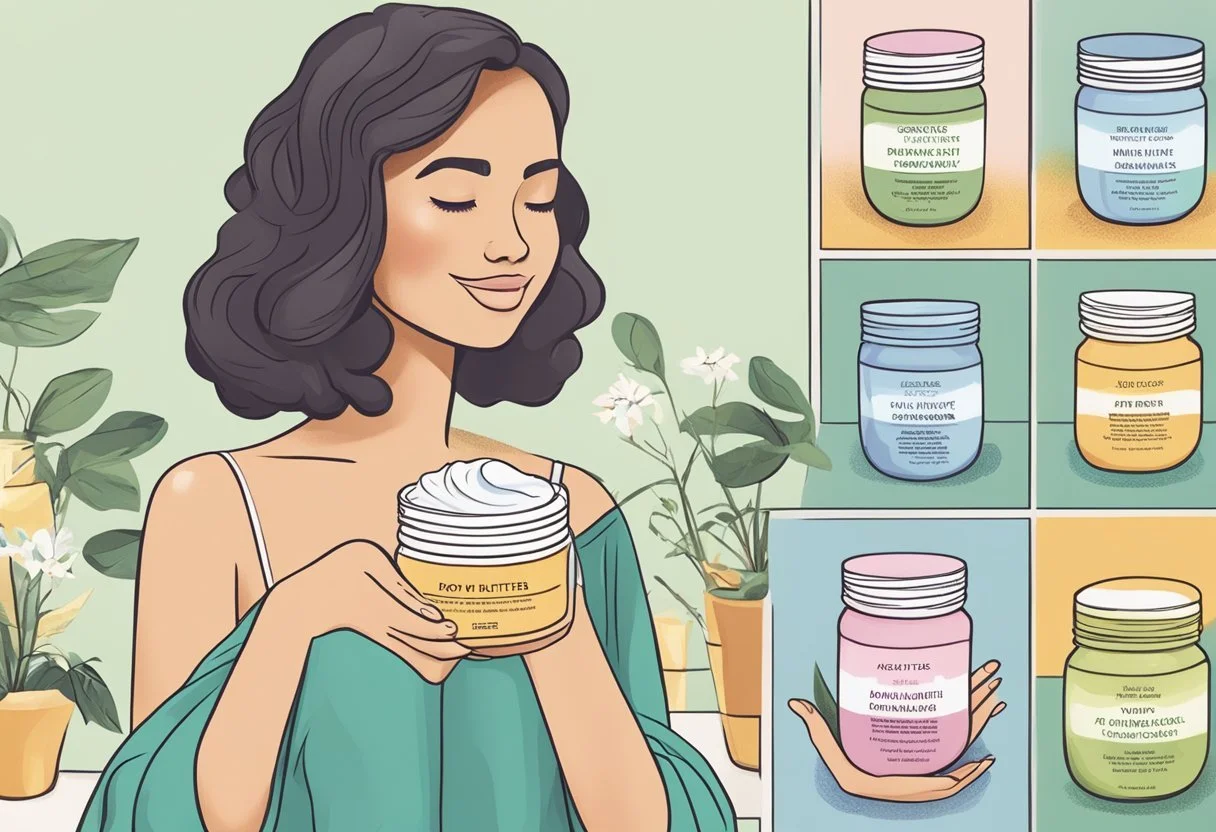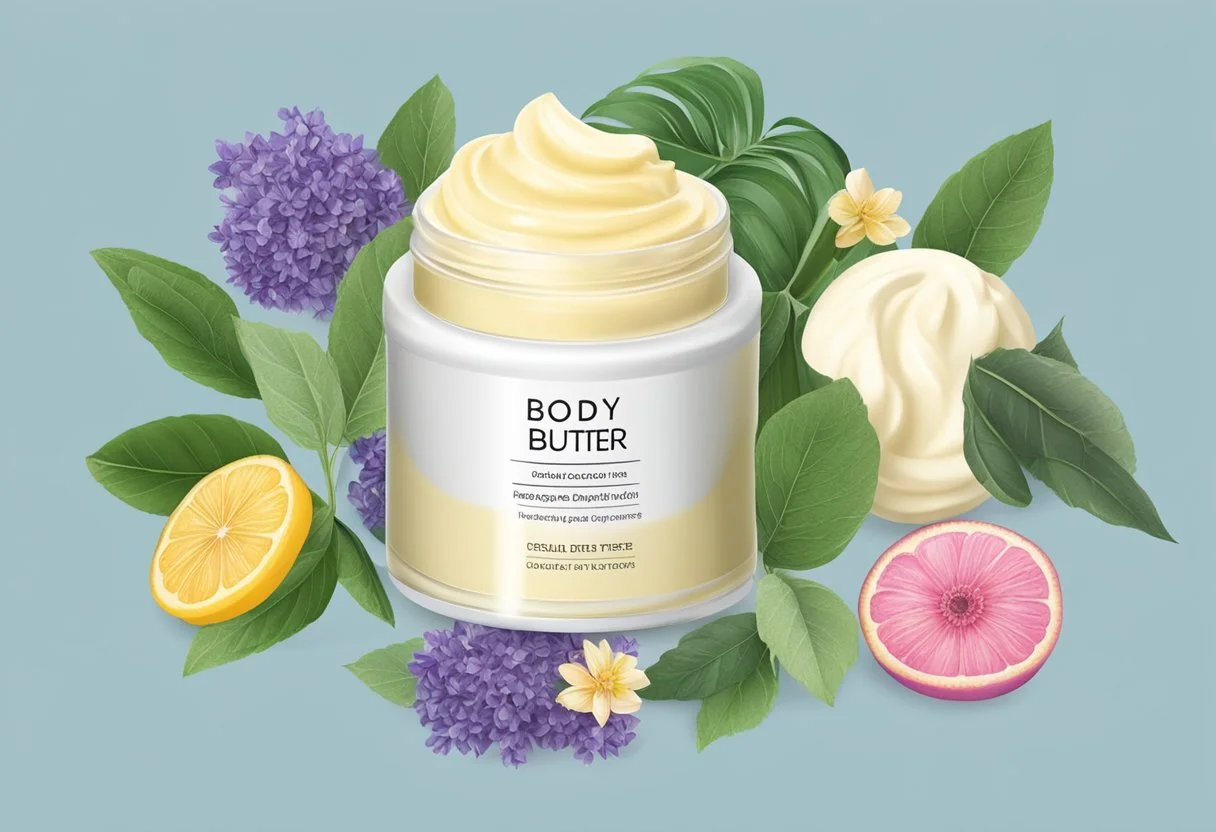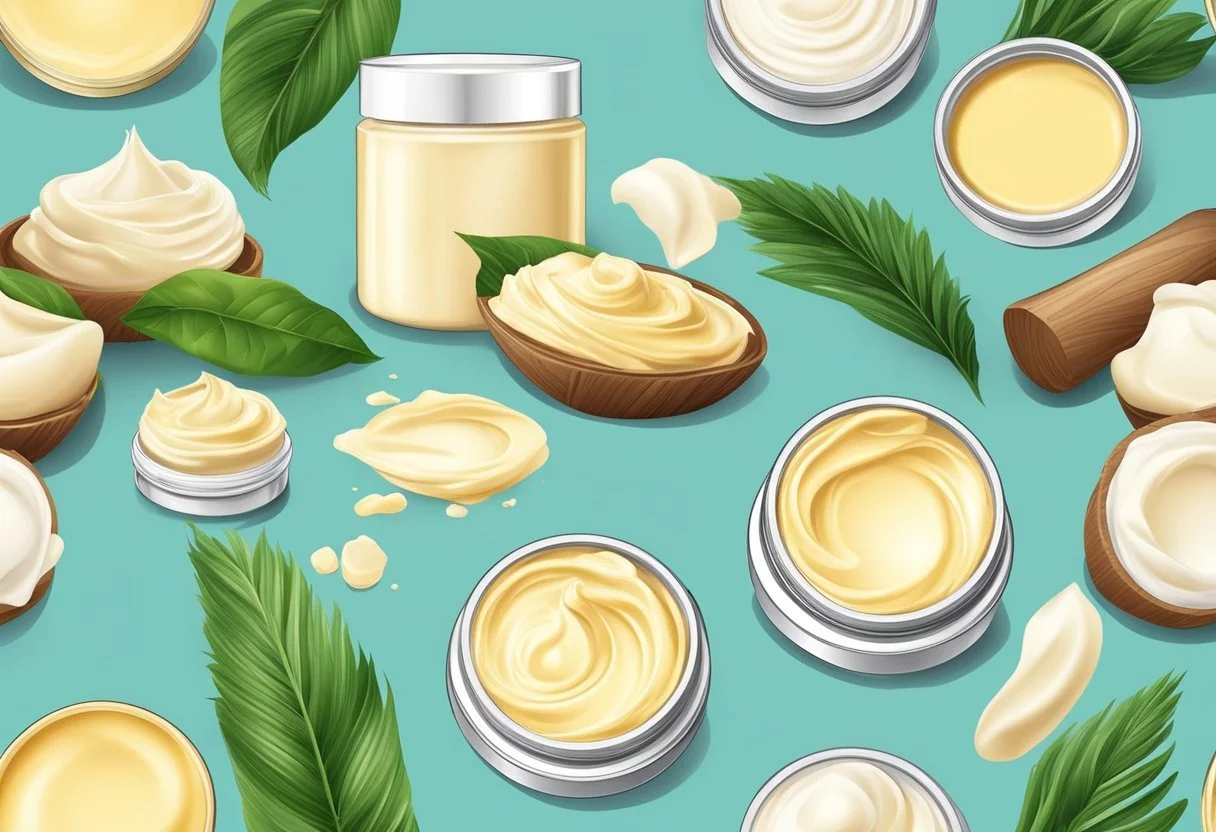How Do You Use Body Butter?
A Simple and Efficient Guide
This article is part of our series on Natural Health
Discover > Natural Health > How Do You Use Body Butter?
Body butter (how long does butter last?) is a luxurious and deeply moisturizing skincare product that has gained popularity for its ability to nourish and hydrate the skin. Made from a combination of natural oils and butters like shea, cocoa, and mango, these rich formulas offer a more concentrated form of moisture compared to lotions and creams. This article aims to help you discover the best ways to use body butter to maximize its benefits, ensuring softer, smoother, and healthier skin.
Understanding the right way to use body butter is crucial in ensuring you achieve the most desirable results. Since it features a thicker consistency, body butter may need some time to be fully absorbed by the skin. Applying it in the correct manner can ensure that you get the most out of its moisturizing properties while making your skin feel pampered and well-cared for.
In this article, we will explore various techniques for incorporating body butter into your regular skincare routine. From the optimal time to apply it, to the suggested quantity and the right method of application, you will gain a confident and knowledgeable understanding of how to use body butter effectively. This information will help you achieve a more beautiful and radiant complexion, with the added benefit of a soothing and enjoyable self-care experience.
Understanding Body Butter
Body butter is a luxurious, rich cream that offers deep hydration for the skin. It is formulated with various natural butters, such as cocoa butter, (how long does cocoa butter last?) shea butter, and kokum butter, all extracted from the seeds, nuts (how long do nuts last?), or fruits of their respective plants. These natural butters contain nourishing organic ingredients that provide numerous benefits for the skin.
Unlike body creams, body butters have a more solid or whipped texture. This consistency comes from the relatively high concentration of natural butters, which are known to have a thicker consistency compared to lotions and creams. The solid and whipped textures allow for a more concentrated application, leaving the skin feeling soft and nourished for longer periods.
Some popular types of body butters include:
Cocoa Butter: Derived from the cocoa seeds, this butter is known for its deep moisture and ability to smooth out scars and stretch marks.
Shea Butter: Extracted from the seeds of the shea tree, shea butter is prized for its emollient properties and ability to reduce inflammation and soothe irritated skin.
Kokum Butter: Sourced from the kokum tree, kokum butter is valued for its skin-regenerative properties, improving the appearance of dry, damaged skin.
Body butters are particularly effective for people with dry or sensitive skin. The rich formula helps lock in moisture, creating a natural barrier that prevents water loss and protects the skin from harsh environmental elements. The organic ingredients found in body butters have the added benefit of providing vitamins, minerals, and antioxidants, nurturing the skin and promoting overall health and radiance.
In conclusion, body butters are an excellent choice for those seeking deep, long-lasting hydration. They are crafted with natural, organic ingredients such as cocoa butter, shea butter, and kokum butter, providing rich and natural moisture for all skin types.
Benefits of Using Body Butter
Body butter, a thick and luxurious skincare product, offers several advantages for those who use it regularly. One of its primary benefits is its ability to hydrate and nourish dry skin. The dense, creamy consistency of body butter provides long-lasting hydration that penetrates deep into the skin's layers to moisturize effectively.
Moreover, body butter is an excellent option for softening and soothing the skin, especially for those suffering from skin conditions such as eczema, psoriasis, or general dryness. The high concentration of essential fatty acids, antioxidants, and vitamins in the formula work collectively to restore the skin's natural moisture balance. These beneficial ingredients also promote skin healing and repair, making body butter an ideal solution for various skin issues.
In addition to its hydrating and nourishing properties, body butter provides a protective layer on the skin's surface. This barrier is crucial as it helps to seal in moisture, keeping your skin soft and smooth throughout the day. The protective layer also works to shield your skin from external factors like pollution and harsh weather conditions, which can otherwise cause dryness and irritation.
In conclusion, incorporating body butter into your skincare routine can significantly improve the overall health and appearance of your skin. By providing hydration, nourishment, and protection, body butter can alleviate dryness, soften the skin, and address various skin conditions.
How to Apply Body Butter
After Shower Care
Using body butter is an excellent way to keep your skin hydrated, especially during the winter months when regular lotions may not provide enough moisture. After a shower, gently pat your skin dry with a towel. Apply a generous amount of body butter while your skin is still slightly damp. This helps lock in the moisture. Massage it into your skin using gentle, circular motions. Focus on dry areas like elbows, knees, and heels. Avoid the face, as body butter may be too greasy for facial skin.
Dealing with Dry Spots
Body butter is particularly effective in treating dry spots on the body. To target specific areas, such as elbows, knees, and feet, apply the body butter directly to those spots. Use your fingers to massage the moisturizer into the skin with circular motions until it is absorbed. For hands, apply a generous amount of body butter and rub your hands together until fully absorbed. If you have oily skin, use a lighter body lotion to prevent over-moisturizing.
Overnight Hydration Treatment
For an overnight moisture treatment, prepare your skin after a warm water shower, as hot water can strip the skin of its natural oils. Close your pores with a splash of cold water, then apply an even layer of body butter to the areas requiring extra hydration. For your feet, cover them with socks after applying body butter. For your hands, either wear gloves or use socks as a makeshift cover. Pay special attention to elbows and knees, massaging the body butter into the skin before going to bed. This will allow your skin to stay moisturized and hydrated as you sleep. Incorporate this treatment into your daily shower routine for optimal results.
Choice of Body Butter for Different Skin Types
Body butter is a rich and luxurious moisturizer that nourishes skin. Choosing the right body butter for your specific skin type is crucial for optimal results. It's essential to consider various factors, including your skin's needs and desired outcomes.
For dry skin, it's best to use a body butter with a high oil content, such as shea, cocoa, or mango butter (how long does mango butter last?). These ingredients work well to deeply hydrate and lock in moisture, alleviating dry, flaky, or rough skin. Additionally, natural oils like jojoba, almond, and olive oil provide further nourishment and skin barrier protection.
Oily skin types should opt for a lightweight and non-comedogenic body butter. Look for those formulated with aloe vera, green tea, or cucumber extracts, as they can effectively moisturize without clogging pores or leaving a greasy residue. These ingredients also have soothing properties that help reduce inflammation and acne irritation.
Eczema and psoriasis sufferers can benefit from body butters infused with calming agents such as chamomile, calendula, or oatmeal extract. These natural elements can provide relief from itching, redness, and inflammation associated with these skin conditions. Additionally, opting for fragrance-free, hypoallergenic body butters is essential to prevent further irritation.
In conclusion, understanding your skin type and its specific needs is vital when choosing the right body butter. By selecting a product tailored to your skin's concerns, you can enjoy the benefits of softer, smoother, and healthier skin.
Making Homemade Body Butter
Use of Natural Oils and Butters
Making homemade body butter involves using natural oils and butters that provide essential nutrients to the skin. Popular choices include coconut oil, jojoba oil, almond oil, and grapeseed oil (how long does grapeseed oil last?). These oils are vegetable-based and rich in essential fatty acids, benefiting the skin's overall health and appearance.
Coconut oil, for example, offers several benefits for the skin. It is easily absorbed and contains fatty acids that help moisturize and nourish the skin. Jojoba oil, on the other hand, closely resembles the skin's natural sebum, making it a fantastic option for regulating oil production. Almond oil is a lightweight, non-greasy oil that works as a gentle emollient and is suitable for all skin types. Grapeseed oil has potent antioxidant properties and is gentle enough to be used on sensitive skin.
When selecting oils and butters for homemade body butter, consider the following factors:
Skin type (oily, dry, combination, sensitive)
Desirable benefits (anti-aging, moisturizing, soothing)
Availability and affordability
It's important to choose organic ingredients whenever possible to ensure high quality and effectiveness.
Adding Fragrance
To make homemade body butter more enjoyable and personalized, add fragrances from essential oils or natural extracts. Essential oils are concentrated, aromatic compounds obtained from plants. They offer a range of potential benefits and can help create a specific atmosphere for the user, such as soothing, energizing, or uplifting.
Popular essential oils for homemade body butters include:
Lavender: calming and relaxing
Peppermint: invigorating and fresh
Orange: uplifting and energizing
Eucalyptus: cooling and refreshing
Natural extracts, such as vanilla, cocoa, or seed extracts, can also be used to enhance a homemade body butter's aroma. Blending different scents together can create unique fragrances that suit individual preferences. Begin by adding just a few drops of essential oil or extract and adjust the quantity according to personal preference. It's essential to perform a skin patch test before using any new oils or extracts to avoid potential allergic reactions.
Additional Uses for Body Butter
Body butter offers various benefits as a versatile skincare product. Apart from acting as a moisturizer for the skin, it can help address other concerns.
Cuticle care: Generous application of body butter around the cuticles keeps them soft and moisturized, paving the way for a perfect manicure.
Stretch marks: Regularly massaging body butter on areas with stretch marks can help improve their appearance by keeping the skin nourished and hydrated.
Dry patches: People with dry skin often experience rough patches, especially on elbows, knees, and heels. A dollop of body butter on these areas can provide relief and promote healthy skin.
Perfume enhancer: Mixing a small amount of body butter with perfume and applying it to the pulse points can help make the fragrance last longer.
Makeup removal: In place of a traditional makeup remover, one can use body butter. Gently massaging it on the face and wiping it off with a soft cloth or cotton pad can effectively remove makeup.
Cracked heels: Body butter can come to the rescue for dry, cracked heels. Apply a thick layer onto the feet, especially the heels, before sleeping for an overnight treatment.
Shaving cream alternative: Shaving gels and creams can be expensive. A thin layer of body butter can act as a low-cost substitute for a smooth shave while moisturizing the skin.
Hand cream option: Due to frequent hand washing, hands can become dry and in need of a moisturizing hand cream. Body butter helps replenish the skin's moisture and keeps hands soft.
Remember, all these applications work best when using a body butter with natural ingredients to ensure a safe and nutrient-rich skincare experience.
Natural Health Solutions for Personal Care and Wellness
Natural health practices can provide a range of benefits for personal care and wellness. Sugar hairspray can be made with natural ingredients like sugar, water, and essential oils to provide a natural and effective hold for hairstyles without the use of harmful chemicals.
Yoga poses can help to promote healthy digestion and relieve constipation. Poses like the seated forward bend, spinal twist, and downward dog can help to stimulate the digestive system and promote healthy bowel movements.
Drinking water can help to reduce allergy symptoms by flushing out allergens and promoting healthy hydration. Staying hydrated can also help to reduce inflammation and promote healthy immune function.
Fragrance is made of a combination of natural and synthetic ingredients, including essential oils, synthetic fragrances, and other potentially harmful chemicals. Choosing natural and organic fragrances that are free from synthetic fragrances and other harmful chemicals can help to reduce exposure to these ingredients and promote overall health and wellness.
By incorporating natural health practices into your daily routine and making healthy choices for personal care and wellness, you can support your overall health and well-being in a sustainable and holistic way. It's important to do your own research and consult with a healthcare professional before using any new remedies or making significant changes to your diet or lifestyle.
#normal or oily skin #wet skin #unscented body butter #body lotions #intense moisture treatment #honey whipped body butter






